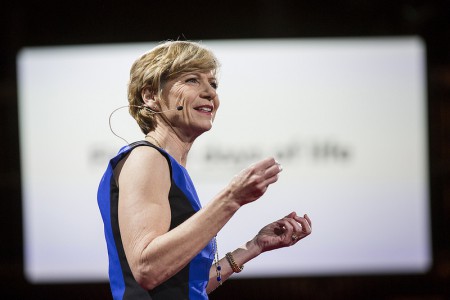In the None Zone, investing in people instead of programs may unlock answers to the vexing questions about Christianity.

Problems take People not money
Recently on a Delta flight, I learned something about the really big problems of the world.
I read in their in-flight magazine an interview of Dr. Sue Desmond-Hellmann, the CEO of the Bill and Melinda Gates Foundation. It’s by far the largest private foundation in the world, and she talked in her interview about solving big problems in education and health.
In a section talking about the polio vaccine and eradicating this disease, she outlines what the billions of dollars from the Gates’s and Warren Buffett are really being spent on: people.
Whenever I feel anxious, I think about the power of lots of people all pointed in the same direction…when I think about all of the energy at the Gates Foundation, at the World Health Organization, at UNICEF, Rotary, and many, many partners who are focused on polio eradication, instead of feeling overwhelmed I feel inspired by all that talent, all that muscle, all that passion being directed to get rid of that disease.
While money certainly finances the right people, all the money in the world wouldn’t solve polio if it was just thrown at it. It takes smart, passionate, and focused people working in multiple venues and multiple methods throughout the world to begin to eradicate this disease.

Problems For the None Zone
While I’m not the CEO of the world’s largest private foundation, I also have a passion for dealing with the big problems. And the one facing Christianity is how to handle the winnowing period ahead. From last year’s Pew Forum study:
In the United States, Christians will decline from more than three-quarters of the population in 2010 to two-thirds in 2050…At the same time, however, the unaffiliated are expected to continue to increase as a share of the population in much of Europe and North America. In the United States, for example, the unaffiliated are projected to grow from an estimated 16% of the total population (including children) in 2010 to 26% in 2050.
While those seem like unfathomable numbers to folks in the Bible Belt, the northwestern regions already reflect these trends. As Professor James Wellman on Christ & Cascadia explains:
More than 60 percent of Cascadia (roughly Washington, Oregon, and British Columbia) are religiously unaffiliated. Another 11 percent are Catholic, and 10 percent are some form of evangelical. The rest are a conglomeration of mainliners, Mormons, Jews and Muslims. That leaves 60 percent of Cascadians who are religiously unaffiliated, 30 percent are “nones” (i.e. spiritual but not religious) while the other 30 percent attest to being Catholic or Protestant, even though no church claims them.
My own United Methodist Church reflects these struggles. The entire Western area of United Methodism (from Colorado to the Pacific Ocean) has as many Methodists as Georgia does. It’s a very real problem to deal with, even if it can be framed as an opportunity.

An Under-Resourced Mission Field
I’m from the Bible Belt but relocated to Northwestern America four years ago. I moved here for family reasons, but I also moved here because of two convictions:
- I believe Christianity operates better when it is in the minority culture.
- The rest of America will look more like the Northwest in the coming decades.
One aspect of my work now is seeing how under-resourced the West really is by the global church. In my denomination of United Methodism, the West is persistently under-represented in resources and voices, while burdened with higher percentages of costs than the Bible Belt. We have fewer people, which means fewer collective dollars, to run the programs for youth, children, senior adults, and others that the Bible Belt enjoys. It’s a vicious circle.
I used to think we need money. But now I see that we need people. The right kind of people:
- People who are coming to learn from our context, not to “save us.”
- People who are interested in serving in a mission field amidst American prosperity
- Smart people who are contextual, and will try church forms in bars, homes, and other offbeat places.
We have many of the right people now, of course, doing great ministry across these Western states. But what it takes is all of us focused on the problem of how are we going to discover the forms of Church that will thrive in the winnowing period ahead.
My hope is that churches continue to invest in sending people as missionaries to the West, to partner with local groups, to do the deep listening, and most of all, share their discoveries with the rest of us so that we can handle this as a global village, not as a collection of silos.

A Grounded Optimism
I share Dr. Desmond-Hellmann’s optimism as she concludes her interview with these words:
“Like Bill and Melinda, I’m optimistic. But it isn’t an unplaced optimism, it’s optimism based on the talent all around me. I think it’s good to feel powerful when you’re tackling hard things. It’s good to be reminded that all of our aspirations, they all come down to people.”
My hope is that by empowering local people and by investing in the right missionary people, the new form of Church that will endure the winnowing ahead, or perhaps be born through it, will be discovered in a way that all of Christendom will benefit from.
Thoughts?
(source: “No Problem Too Big” Sky Interview by Dara Moskowitz Grumdahl. Sky Magazine, May 2016, pp 57-66)


The Carter Center puts this concept this way: “In all our work, an emphasis is placed on building partnerships for change among international agencies, governments, nongovernmental organizations, corporations, national ministries of health, and most of all, with people at the grass roots. We help people acquire the tools, knowledge, and resources they need to transform their own lives, building a more peaceful and healthier world for us all.” (source http://www.cartercenter.org/health/index.html)
People = relationships
Folks used to go to church to connect with the community. Habitual attendance led to habitual support of all facets… ministries, programs, & staff. Many of those in the stats listed do not step foot inside a church building thus severing ready-made opportunities for fostering relationships & the subsequent support.
Our approach needs to be meeting people where THEY are, as a habit, to form relationships focused on discipleship. In our “iWorld” as I call it, our self-siloing behaviors demand different and authentic ways to connect.
I agree with your line of thinking… we need to invest in the right people to connect with new people in new ways. We began as a movement. It’s time to keep moving.